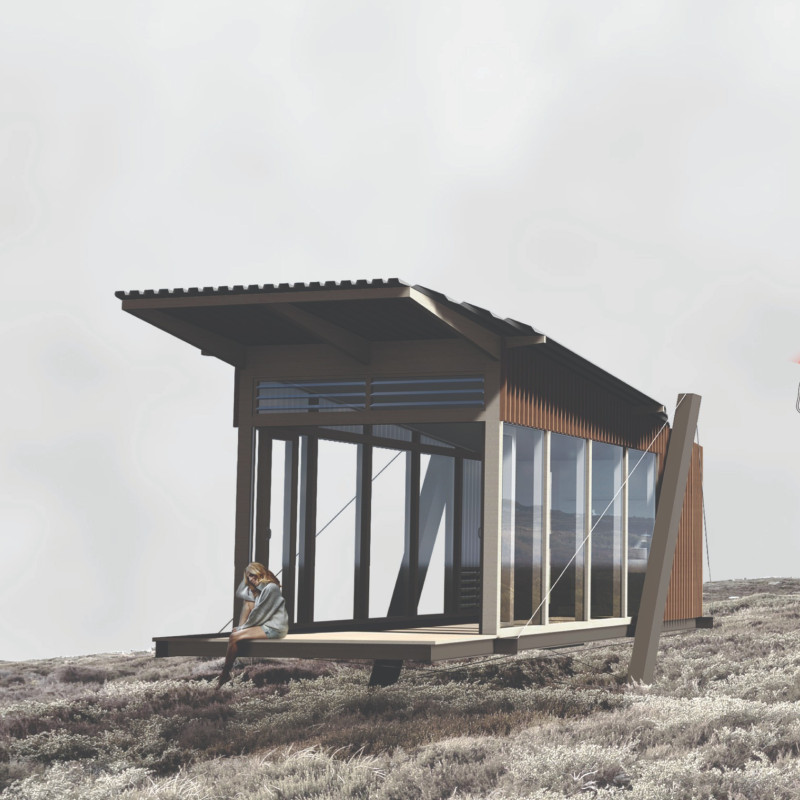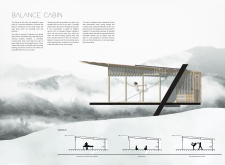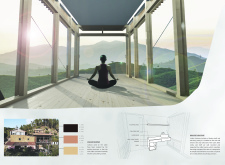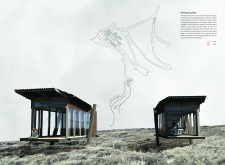5 key facts about this project
The yoga cabin combines natural beauty with practical design within a peaceful setting. This retreat focuses on activities such as meditation, massage therapy, and yoga, embodying the principles of balance and tension found in yoga practice. Its layout minimizes environmental impact while adapting to the diverse contours of the land around it.
Structural Concept
Two slanted steel columns support the cabin, creating an image of balance. This design choice not only provides stability but also reflects the dynamic essence of yoga through its shape. The use of cable bracing adds support while also contributing to the cabin's lightweight appearance, promoting a sense of openness.
Spatial Configuration
The cabin features an open-plan layout that maximizes versatility. This design allows the space to serve different purposes, from one-on-one yoga classes to meditation and therapy sessions. The arrangement promotes a calm environment tailored to enhance the user’s overall experience and connection to nature.
Engagement with Nature
Floor-to-ceiling glazing walls paired with louvre windows invite natural light into the cabin and create a connection between the interior and the landscape. These design elements protect occupants from harsh weather while allowing for a strong visual and physical link to the outdoors. It fosters a relaxing atmosphere where users can fully embrace the natural surroundings.
Sustainability Features
The cabin is designed to function entirely off-grid, reflecting a commitment to sustainability. Photovoltaic panels generate electricity, while a rainwater collection system provides a needed water source. Wastewater is managed through a greywater filtration system, allowing for irrigation. These features demonstrate an awareness of ecological responsibilities and highlight the relationship between the cabin and its natural context.
A key detail is the use of wall-mounted furniture, including floating shelves and vanities. This design keeps the interior open and free of clutter. It enhances focus and mindfulness during yoga practice, supporting the overall intention of creating a retreat that nurtures both body and mind.






















































